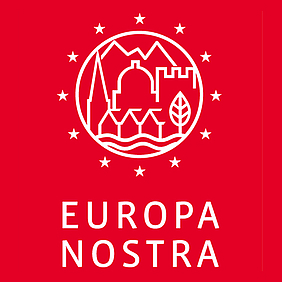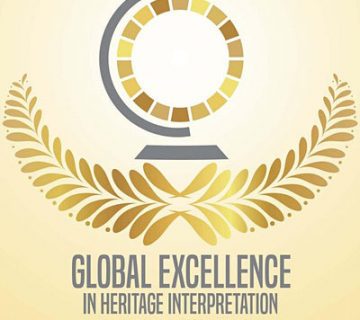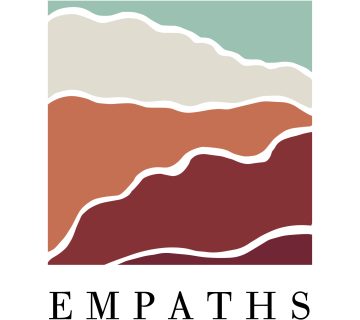Founded in 1963, Europa Nostra is the pan-European federation of heritage NGOs which is also supported by a wide network of public bodies, private companies and individuals.
Our organisation is the voice of civil society committed to safeguarding and promoting Europe’s cultural and natural heritage. Maestro Plácido Domingo is the President of Europa Nostra.
Covering 40 countries, we are today recognised as the most representative heritage network in Europe. Our activities are centred on celebrating, protecting and lobbying for cultural heritage – which are all intertwined.
In partnership with the European Commission, we run Europe’s most prestigious heritage awards scheme. The EU Prize for Cultural Heritage / Europa Nostra Awards celebrate and promote best practices in conservation, research, dedicated service, and education, training and awareness-raising. Since its launch in 2002, 426 exemplary heritage achievements from 34 countries have been recognised; a total of 95 Grand Prix of â¬10,000 each have been presented to outstanding heritage initiatives, selected from among the award-winning projects. Reflecting Europe’s rich cultural heritage, our 2016 Grand Prix laureates include The King’s Little Pathway, a restored suspended walkway in Malaga, Spain, and the Employees and Activists of the National Museum of Bosnia and Herzegovina in Sarajevo.
Applications for the next edition of the Awards need to be submitted by 1st October 2016 – so hurry! Architects, craftsmen, cultural heritage experts, professionals and volunteers, associations and foundations, local communities, public and private institutions: this is your chance to win the top heritage award in Europe!
Another important pillar of our work is protecting cultural heritage: Europa Nostra campaigns to save Europe’s threatened monuments, sites and landscapes, in particular through The 7 Most Endangered programme. Established in 2013 and run in partnership with the European Investment Bank Institute, this programme identifies some of Europe’s most threatened landmarks and mobilises public and private partners – at local, national and European levels – to find a viable future for these sites.
The most recent list of ‘7 Most Endangered’ features heritage landmarks in Armenia, Estonia, Finland, France, Greece, Spain and Turkey and was published in March 2016. We have been organising joint expert missions to the sites since June 2016. This will help to find sustainable solutions for the sites and the missions will present their outcomes and recommendations by the end of this year. The Call for Nominations for the fourth edition will be launched at the beginning of 2017.
Among the first success stories of our ‘7 Most Endangered’ programme are the 15th century monastery in Setúbal in Portugal, which was partially restored and reopened to the public in June 2015, after two decades of closure. Another significant site is the ancient mining landscape of Rosia Montana in Romania, which was classified as a Historic Monument and put on the country’s tentative list for UNESCO World Heritage status at the beginning of 2016. This designation blocked the large-scale gold mining project which had been promoted by a multinational company for 15 years.
Besides celebrating and protecting heritage, Europa Nostra also contributes to the formulation and implementation of European strategies and policies related to heritage, through a structured dialogue with European Institutions and through the coordination of the European Heritage Alliance 3.3.
Together with five other European partners – ENCATC, Heritage Europe, International Cultural Centre (Krakow), Raymond Lemaire International Centre for Conservation (Leuven) and the Heritage Alliance (London), Europa Nostra recently produced a comprehensive Report entitled Cultural Heritage Counts for Europe which provides compelling evidence of the value of heritage and its positive impact on Europe’s economy, culture, and society, as well as the environment.
Europa Nostra is actively preparing for the European Year of Cultural Heritage 2018 by mobilising its wide network. In November, its Council and Board will convene to decide on an ambitious Action Plan for 2017-2019 to ensure civil society will contribute to the fullest to the year. Likewise, Europa Nostra’s leadership is working towards making its 2018 European Heritage Congress one of the highlights of the year with a European Heritage Summit in Berlin. We are now gathering input and ideas from across our network for greater synergies and cooperation. Are you planning events or projects for 2018 or in the run-up to it? Share your plans, ideas and suggestions with us! Let us know by sending an email to our Brussels office: bxl@europanostra.org
For detailed information about Europa Nostra’s activities and on how to be a part of and contribute to our network, please visit our website (www.europanostra.org) and follow us on Facebook and Twitter.
Joana Pinheiro is Communications Coordinator of Europa Nostra. You can reach her at Europa Nostra’s International Secretariat in The Hague, The Netherlands: jp@europanostra.org
To cite this article:
Pinheiro, J. (2016) ‘Europa Nostra – The voice of cultural heritage in Europe’. In Interpret Europe Newsletter 3-2016, 13
Available online:
https://www.interpret-europe.net/fileadmin/Documents/publications/Newsletters/ie-newsletter_2016-3_autumn.pdf




